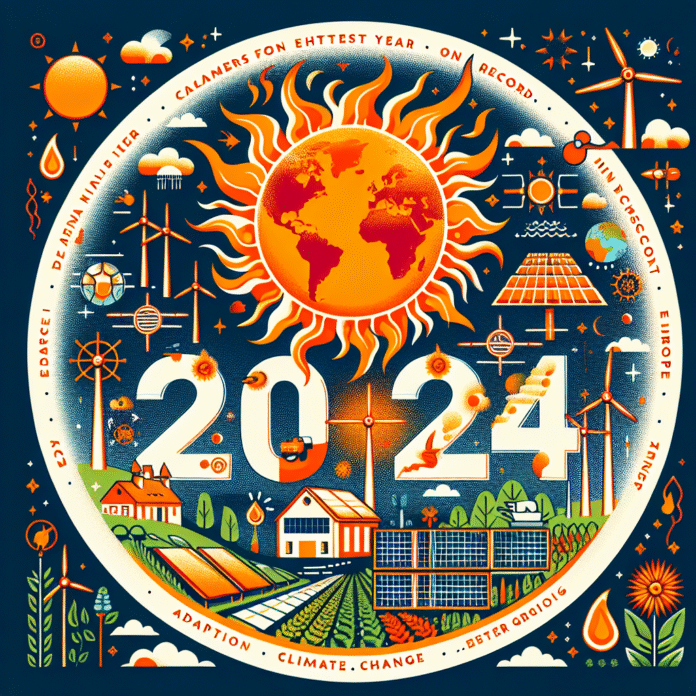2024 Set to Be Europe’s Hottest Year Ever
Adaptation is a Must: 2024 Confirmed as Europe’s Hottest Year on Record
As the climate crisis intensifies, 2024 has been officially recognized as the hottest year on record for Europe, underscoring the urgent need for adaptation strategies across the continent. The alarming rise in temperatures has prompted scientists and policymakers to emphasize the importance of proactive measures to mitigate the impacts of climate change.
Recent data reveals that average temperatures in Europe have soared to unprecedented levels, with significant variations across different regions. Southern Europe has experienced extreme heatwaves, while northern areas are witnessing milder winters. This shift not only disrupts ecosystems but also poses serious threats to agriculture, water supply, and public health.
The Consequences of Rising Temperatures
The repercussions of this record-breaking heat are far-reaching. Agricultural yields are declining as crops struggle to cope with the relentless heat and unpredictable weather patterns. Farmers are facing challenges such as droughts and pest infestations, which are exacerbated by climate change. Additionally, water scarcity is becoming a pressing concern, particularly in regions that rely heavily on consistent rainfall for irrigation.
Public health is also at risk, with rising temperatures linked to an increase in heat-related illnesses and respiratory problems due to worsening air quality. Vulnerable populations, including the elderly and those with pre-existing conditions, are particularly at risk.
Urgent Need for Adaptation Strategies
In light of these challenges, adaptation has become a priority for European nations. Governments are being urged to implement comprehensive climate adaptation plans that address both immediate and long-term impacts. This includes investing in resilient infrastructure, such as flood defenses and heat-resistant buildings, as well as improving water management systems to ensure sustainable access to this vital resource.
Moreover, promoting sustainable agricultural practices is essential for enhancing food security. Techniques such as crop rotation, organic farming, and the use of drought-resistant plant varieties can help farmers adapt to changing conditions while minimizing environmental impact.
International Cooperation and Funding
Addressing the climate crisis requires collaboration on an international scale. European nations are encouraged to work together and share best practices for adaptation, as well as provide financial support to regions that are most affected. The European Union has already taken steps to enhance funding for climate resilience projects, but further investment is needed to ensure that all communities can adapt successfully.
In conclusion, with 2024 marking a stark turning point in Europe’s climate narrative, the call for adaptation has never been more critical. By prioritizing proactive measures and fostering collaboration, European countries can better prepare for the challenges ahead, safeguarding both their populations and ecosystems in an increasingly unpredictable climate.


